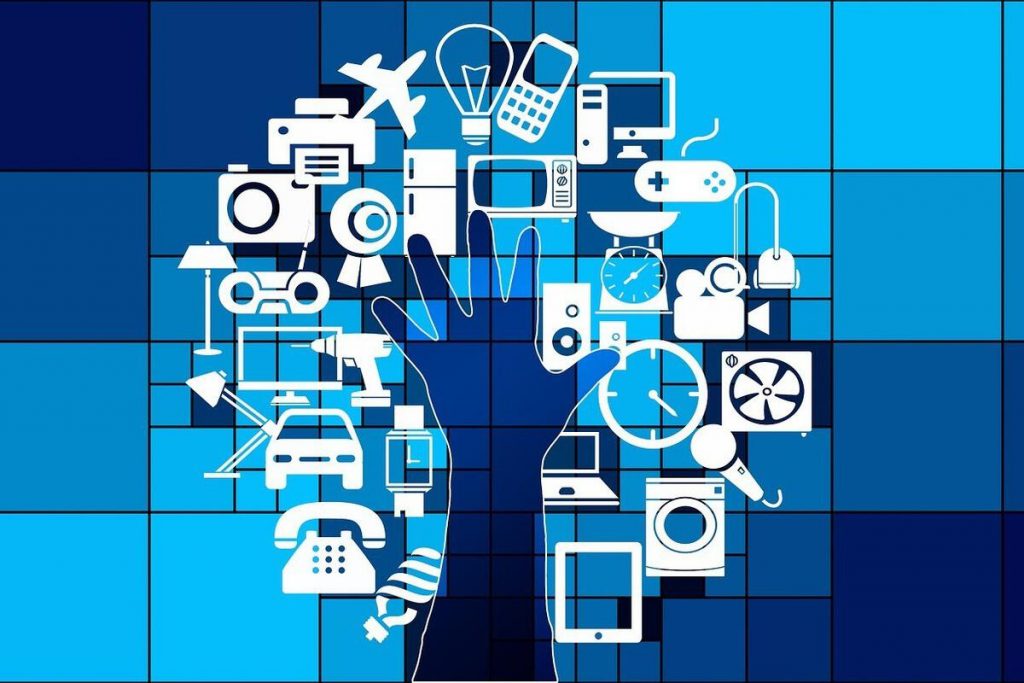
Discussion: Within a couple of decades literally trillions of objects from lamp-posts to refrigerators will be connected to the Internet, and will be talking to one another. This is the Internet of Things (IoT). One example is that all the cars on a freeway will be silently talking to each other, apparently mitigating jams and accidents without the need of human involvement. People aren’t things, but their mobile devices fit in that category, and these will help to mediate our presence in this massively connected world.
523 Inspiration: The immediate education potential is difficult to comprehend, yet equally difficult to dismiss…

I have great difficulty accepting the idea that so many inanimate objects are ‘smart.’ My main concerns are with privacy and security. We already know devices are constantly spying on us, subliminally tempting our inner consumers and possibly making users a little bit less critical when they don’t have to think logically or mathetically through complex issues. Why would anyone want to introduce another level of surveillance and censorship into their lives willingly?
Another problem I have is with complacency. Already, many modern humans (myself included!)are losing important traditional skills that DIY and maker movements seek to retain. Ok, so I can’t fix my snowblower or chainsaw (even with the guidance of Youtube ProAms, I fear) but do I really need to be told by my refrigerator when my 18% coffee cream is empty and needs to be reordered? Whitman and Emerson’s must be rolling in their graves, wiping tears with pages from their Enlightenment doctrines of self-reliance.
Social altruistic and commentators complain that with each subsequent generation, the gap between what is known and what should be known increases.
For me, the Internet of Things is about making all devices more effective and seamless (and most likely mobile) in their gathering and communicating of information. Sidewalks would communicate when they need to be shoveled, trash cans when they need to be emptied, and with the great example above, self-driving cars would get people to and from. In all, our devices would communicate with each other in order to make human experience less frictional.
People would not have to do as much because our technology is doing all the communicating and thinking for us. Cars would drive people automatically: could they also drop off groceries every week, especially when the fridge is communicating it is out of butter? An autonomous snowplow could clear that road or sidewalk that needs shoveling. A house vacuum could emerge to clean a spill the carpet communicated was going to need stain remover.
In all, I am imagining the movie “Wall-E”, not so much with robots everywhere but with technology and devices doing everything for humans because they are so great at communicating with each other: immediate and abundant. It would create a very frictionless experience for people which is why I think it is so inescapable in our future.
So what does this mean for humans and education? Well if you have seen Wall-E, you know that a very frictionless experience makes for very incapable and mundane humans. We would need to think less, problem-solve less, and therefore educate less because our technology is doing it all for us. Would this indeed make us mundane? Or would it free us up from mundane tasks in order to peruse deeper experiences, meaning, and learning?
For one of my previous employers, I got an opportunity to create training material for the integration of a B2B SaaS cloud-based app with IoT. I wouldn’t go into details but in a nutshell, say if a machine breaks down or a particular component malfunctions, IoT sensors would send out an alert to a technician/administrator. In addition, it would create a quality notification and change the production line to a backup machine, etc.
Likewise, in education, IoT devices can control classroom environment by adjusting temperature, lighting, etc. In addition, educators can collect real-time data on students’ activities and classroom conditions as well as the automation of various administrative and operational tasks.
Reference:
Terzieva, V., Ilchev, S., & Todorova, K. (2022). The role of Internet of Things in smart education. IFAC PapersOnLine, 55(11), 108-113. https://doi.org/10.1016/j.ifacol.2022.11.017